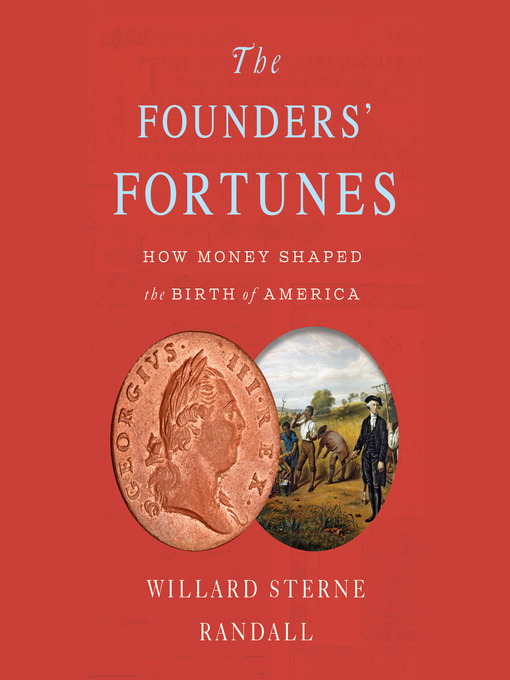- Featured Magazines
- Let's Get Cooking!
- News, Politics, and Business
- Lifestyle Magazines
- Popular Magazines
- All Magazines
- See all magazines collections
The Founders' Fortunes
How Money Shaped the Birth of America
In 1776, upon the signing of the Declaration of Independence, the Founding Fathers concluded America’s most consequential document with a curious note, pledging “our lives, our fortunes and our sacred honor.” Lives and honor did indeed hang in the balance, yet just what were their fortunes? How much did the Founders stand to gain or lose through independence? And what lingering consequences did their respective financial stakes have on liberty, justice, and the fate of the fledgling United States of America?
In this landmark account, historian Willard Sterne Randall investigates the private financial affairs of the Founders, illuminating like never before how and why the Revolution came about. The Founders’ Fortunes uncovers how these leaders waged war, crafted a constitution, and forged a new nation influenced in part by their own financial interests. In an era where these very issues have become daily national questions, the result is a remarkable and insightful new understanding of our nation’s bedrock values.
-
Creators
-
Publisher
-
Release date
February 8, 2022 -
Formats
-
OverDrive Listen audiobook
- ISBN: 9780593292501
- File size: 295560 KB
- Duration: 10:15:44
-
-
Languages
- English
-
Reviews
-
Publisher's Weekly
December 13, 2021
Historian Randall (Unshackling America) explores in this intriguing yet unsatisfying survey how the founding fathers’ personal financial circumstances helped chart the course of the American Revolution. Delving into the business interests and economic considerations of George Washington, Benjamin Franklin, John Adams, Thomas Jefferson, and others, Randall notes that almost all of Connecticut’s delegation to the Second Continental Congress in 1775 were land speculators, motivated in no small part by King George III’s decree barring them from profiting from the fur trade. He also points out that the resistance movement in Massachusetts was bankrolled by John Hancock, whose merchant empire was threatened by English taxes, and that Benjamin Franklin, contrary to his “Poor Richard” persona, became wealthy by investing the profits from his printing and publishing business in Philadelphia real estate. Unfortunately, Randall downplays other political and cultural factors behind the revolution and risks oversimplifying the motivations and considerations of his subjects, as when he suggests that George Washington’s diminished financial circumstances were behind his acceptance of the presidency and its annual salary of $25,000 ($750,000 in today’s money). Readers will find Tom Shachtman’s The Founding Fortunes to be a more thoughtful and nuanced treatment of the same subject. Agent: Don Fehr, Trident Media Group.
-
Formats
- OverDrive Listen audiobook
Languages
- English
Loading
Why is availability limited?
×Availability can change throughout the month based on the library's budget. You can still place a hold on the title, and your hold will be automatically filled as soon as the title is available again.
The Kindle Book format for this title is not supported on:
×Read-along ebook
×The OverDrive Read format of this ebook has professional narration that plays while you read in your browser. Learn more here.

